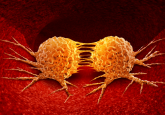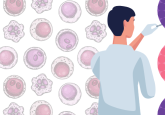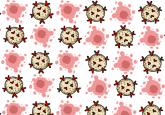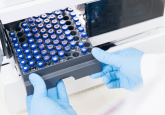What’s coming up at ELRIG Research & Innovation 2024?

This year’s ELRIG Research & Innovation conference is taking place in Manchester (UK) from 20–21 March 2024. The meeting brings together researchers and industry professionals from around Europe working to accelerate future drug discovery. There are four tracks during the conference, covering a breadth of topics: animal-free drug discovery, oncology, tackling antimicrobial resistance, and mass spectrometry and proteomics.
With only 2 days and a number of excellent presentations, there’s a lot to look out for. We’ve highlighted just a few that we can’t wait to watch.
Our top picks for ELRIG Research & Innovation 2024
Wednesday, 20 March
Using pluripotent stem cells to identify new drug targets through disease modeling
12:05–12:35pm in Theater B (Track 1: animal-free drug discovery)
This presentation, given by Susan Kimber (University of Manchester, UK), will highlight the use of human pluripotent stem cells for organoid disease model development. Particularly, Kimber is interested in pinpointing target genes responsible for early changes in fetal tissue development, which are characteristic of rare conditions.
Building an AI-enabled target identification and automated validation pipeline
4:00–4:30pm in Theater A (Track 2: oncology)
No scientific conference in 2024 would be complete without an AI talk! In this presentation, Alex Gaither – Vice President and Head of Research at Exscientia Ai (Oxford, UK) – will discuss the pipeline his company has created, which can automate the drug discovery process from target identification to experimental validation.
These next two look too interesting to miss, but unless you can be in two places at once, you’ll have to pick one!
Improving seizure liability detection in drug development: an in vitro approach using hiPSC neuronal cells and ion channel screening
4:35–5:05pm in Theater B (Track 1: animal-free drug discovery)
The potential for seizures poses a significant problem for later, in vivo stages of drug discovery, so why can’t we explore this potential in earlier stages? Principal Scientist Kimberly Rockley (ApconiX, Macclesfield, UK) will share the two-pronged approach – utilizing an ion channel panel and a microelectrode array assay – she and colleagues have developed to detect seizure liability earlier in the drug discovery process.
Discovery of a novel class of brain penetrant inhibitors of KRAS G12C
4:35–5:05pm in Theater A (Track 2: oncology)
How did researchers at AstraZeneca (Oxford, UK) identify a drug candidate for treating KRAS G12C positive brain tumors? Jason Kettle, Senior Principal Scientist, will share how their structure-based drug design approach led to the identification of the novel brain-penetrant inhibitors in this presentation.
Thursday, 21 March
Spatial proteomics pinpoints JAK/STAT signaling as the driver of lethal cutaneous drug reactions
11:05–11:35am in Theater A (Track 4: mass spectrometry and proteomics)
Thierry Nordmann is a postdoctoral fellow from the Max Planck Institute of Biochemistry (Munich, Germany). At ELRIG, he will be presenting the novel spatial proteomics technology he and his colleagues developed to uncover the molecular drivers of toxic epidermal necrolysis, the most severe form of cutaneous adverse drug reactions characterized by skin detachment.
Development of patient-derived neutralizing antibodies targeting multidrug-resistant Pseudomonas aeruginosa
11:40–12:10pm in Theater B (Track 3: tackling antimicrobial resistance)
In this presentation, Alexander Simonis – a physician at University Hospital of Cologne (Germany) – will discuss the findings of their study, which sought to develop patient-derived antibodies that target Pseudomonas aeruginosa, a bacteria known for their extensive antibiotic resistance mechanisms.
High-throughput mass spectrometry in drug discovery
2:20–2:50pm in Theater A (Track 4: mass spectrometry and proteomics)
Professor of proteomics Matthias Trost (Newcastle University, UK) will highlight the power of mass spectrometry in label-free in vitro assays as well as its role in the setup of multiplexed cellular phenotypic assays. Additionally, he will discuss how technological advances will increase future use and capabilities of mass spectrometry in drug discovery.
Getting phages closer to clinical development
2:50–3:20pm in Theater B (Track 3: tackling antimicrobial resistance)
In one of the last presentations of the 2-day event, Martha Clockie (University of Leicester, UK) will talk about the role that bacteriophages can play in human therapeutics and the approaches her lab is using to link phage genomes and phenotypes to facilitate correct phage selection.
Will you be at ELRIG Research & Innovation this year? Want to talk to BioTechniques about your research? Email us!





